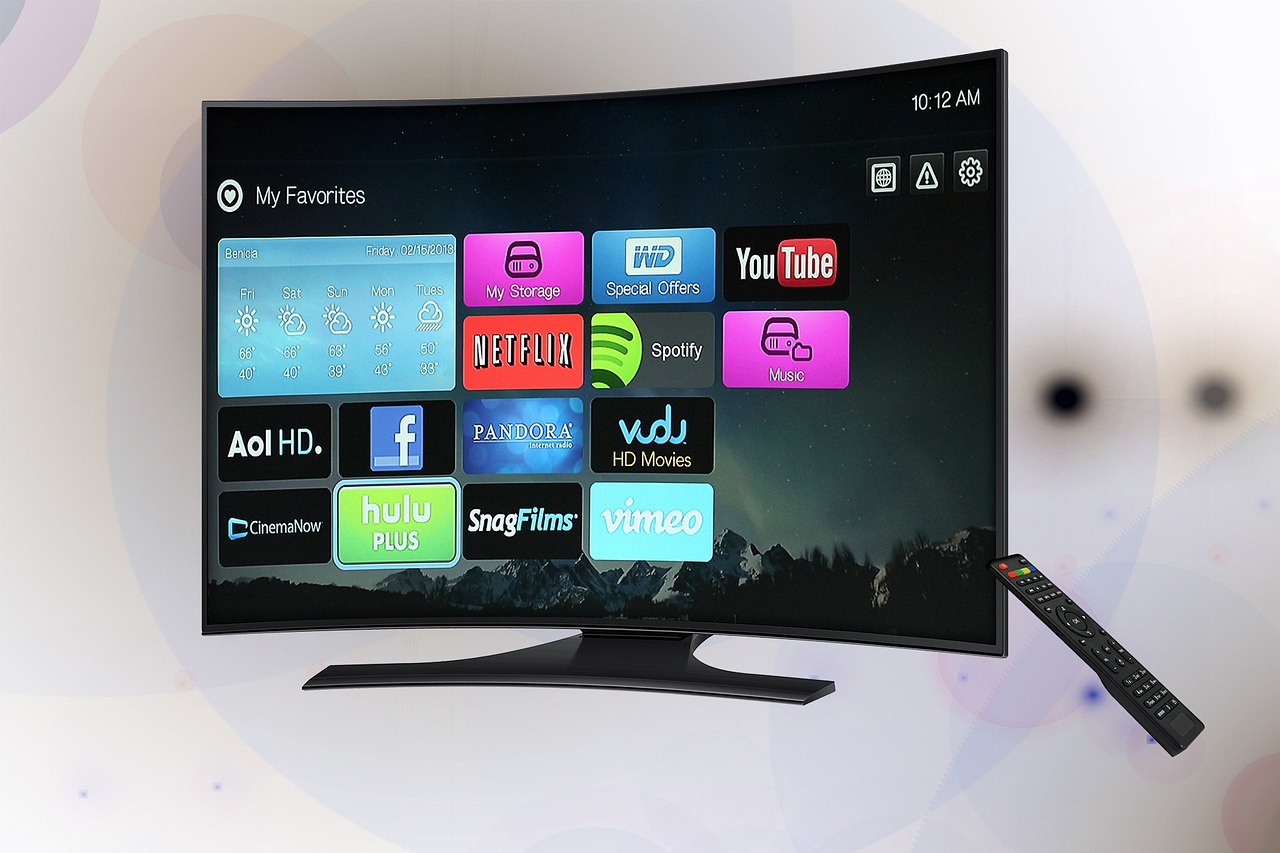In the ever-evolving world of technology, the choice between an Android TV and a Smart TV has become a common dilemma for consumers seeking the perfect entertainment solution. Both options offer a range of features that promise to transform your viewing experience. This article aims to provide a comprehensive comparison between Android TV and Smart TV, delving into their strengths, weaknesses, and which one might be the best fit for your entertainment preferences.
Understanding Android TV and Smart TV
Android TV and Smart TV are two distinct categories of televisions that offer internet connectivity and a wide range of interactive features. Android TV is powered by the Android operating system, the same software used in smartphones and tablets. On the other hand, Smart TV is a term used to describe any television with built-in internet capabilities and various pre-installed apps for streaming and web browsing.
Operating Systems: Android TV and Smart TV Interfaces
Android TV boasts a familiar interface for those accustomed to using Android devices. Its layout is user-friendly, with a customizable home screen, Google Assistant integration, and seamless integration with other Google services. Smart TVs, however, come with different operating systems depending on the manufacturer. While some interfaces are intuitive, others may require a learning curve.
App Ecosystem: Exploring App Availability and Integration
When it comes to app availability, Android TV has an edge due to its association with the Google Play Store. This ensures a vast library of apps and games optimized for television screens. Smart TVs also offer a variety of apps, but the selection can vary. The integration of popular streaming platforms like Netflix, Hulu, and Prime Video is a common feature in both options.
User Experience: Navigating Menus and Interface Fluidity
Android TV provides a seamless user experience with its well-designed interface. The ability to customize the home screen with preferred apps and recommendations enhances convenience. Smart TVs may have varying degrees of interface fluidity, which could impact user satisfaction.
Hardware and Performance: Processing Power and Speed
Android TV devices come with varying levels of hardware specifications, allowing consumers to choose a model that aligns with their performance requirements. This can lead to a smoother and faster user experience. Smart TVs also offer different hardware configurations, but Android TV's flexibility gives it an advantage.
Connectivity and Integration: Ports, Compatibility, and IoT
Both Android TV and Smart TV models come with multiple ports for connecting external devices. Android TV's integration with the Internet of Things (IoT) devices adds a layer of convenience for controlling smart home appliances. Smart TVs might have similar capabilities, but Android TV's ecosystem has a broader reach.
Voice Control and AI Integration
Voice control is a standout feature of both Android TV and Smart TV. Android TV's integration with Google Assistant enables voice commands for tasks like content search and device control. Many Smart TVs also offer voice control, but Android TV's integration with Google's AI technology often results in more accurate and intuitive interactions.
Gaming and Multimedia Capabilities
Android TV's gaming capabilities are impressive, with access to a wide range of gaming apps and the potential for using external controllers. Smart TVs also offer gaming options, but Android TV's hardware compatibility and app selection make it a more versatile gaming platform.
Customization Options and User Profiles
Android TV allows multiple user profiles, each with personalized recommendations and settings. This is particularly useful for households with diverse entertainment preferences. While some Smart TVs also support user profiles, Android TV's level of customization is hard to beat.
Price Points: Affordability and Value for Money
Smart TVs are available at various price points, making them accessible to a wide range of consumers. Android TV devices also span a similar price range, offering different levels of performance and features. Finding the right balance between affordability and features is crucial when making a decision.
Future-Proofing and Software Updates
Android TV devices generally receive timely software updates, ensuring access to the latest features and security enhancements. Smart TV updates can be more inconsistent, and some models might not receive updates for an extended period.
Energy Efficiency and Eco-Friendliness
Both Android TV and Smart TV models have become more energy-efficient over the years, contributing to reduced electricity consumption and lower utility bills. Manufacturers are increasingly focusing on eco-friendly materials and manufacturing processes.
Customer Support and Warranty
Android TV benefits from Google's extensive customer support network, ensuring prompt assistance and access to resources. Smart TV manufacturers offer varying levels of customer support and warranty coverage, which should be considered when making a purchase.
Making Your Decision: Android TV or Smart TV?
The choice between Android TV and Smart TV ultimately comes down to individual preferences and requirements. Android TV excels in customization, gaming, and AI integration, making it ideal for tech-savvy users. Smart TVs are more accessible in terms of pricing and offer a solid range of features for general entertainment needs.
Conclusion
In the dynamic landscape of entertainment technology, both Android TV and Smart TV have their merits. Your decision should be based on factors such as customization, app availability, gaming potential, and budget. Assessing your specific needs will guide you towards the TV that best enhances your entertainment experience.
FAQs
Can I install third-party apps on Android TV? Yes, Android TV allows you to install a variety of third-party apps from the Google Play Store.
Do Smart TVs support voice control without additional devices? Many modern Smart TVs come with built-in voice control features that do not require additional devices.
Are software updates important for my TV? Yes, software updates are essential for accessing new features, bug fixes, and security improvements.
Can I connect my Android TV or Smart TV to my smart home devices? Both Android TV and Smart TV can be integrated with various smart home devices, providing enhanced control and convenience.
Do Android TV and Smart TV consume more energy than traditional TVs? No, advancements in technology have led to increased energy efficiency in both Android TV and Smart TV models.

0 Comments